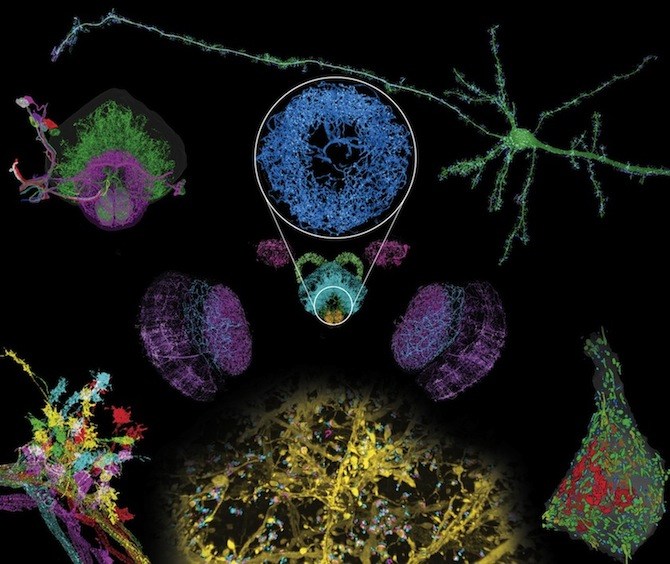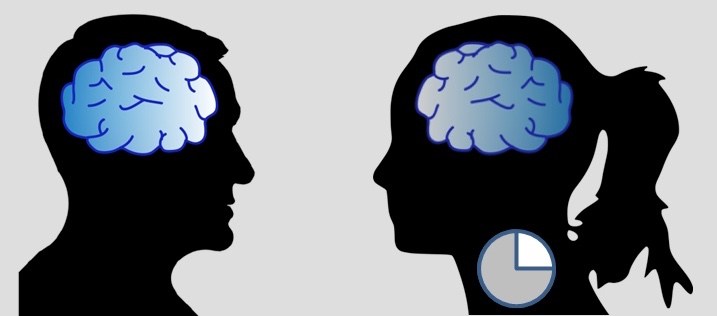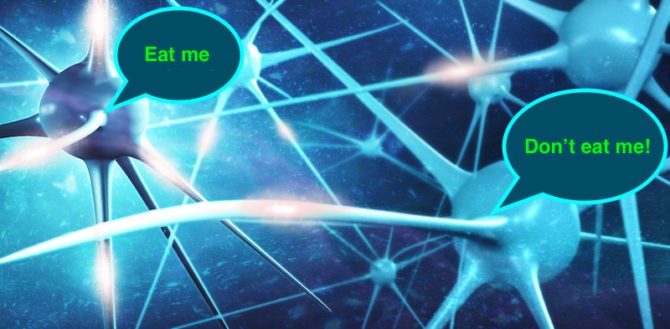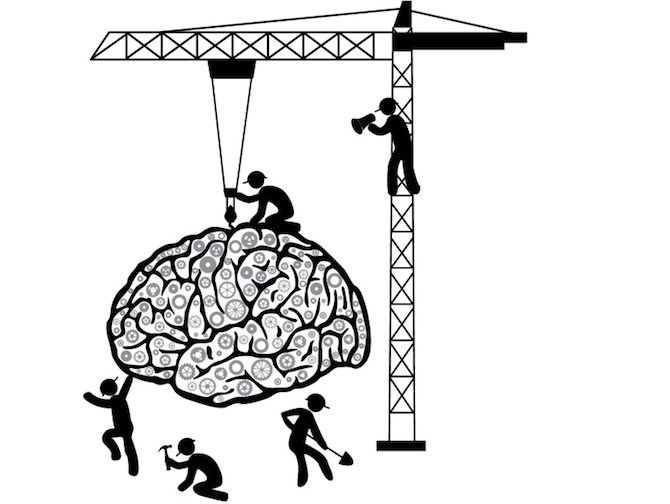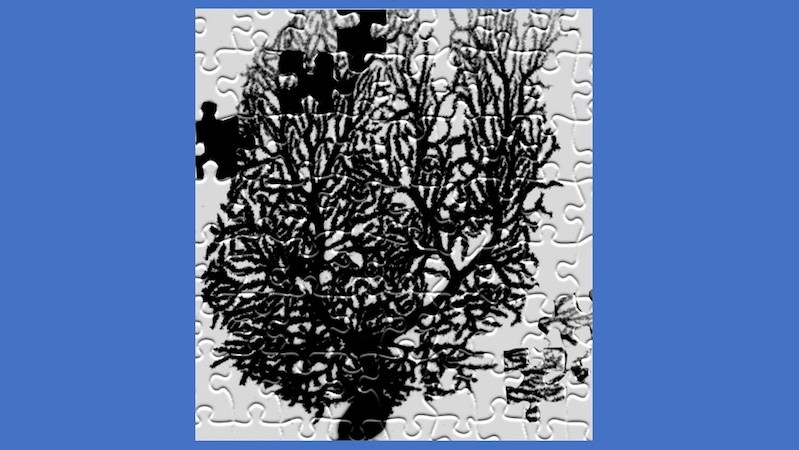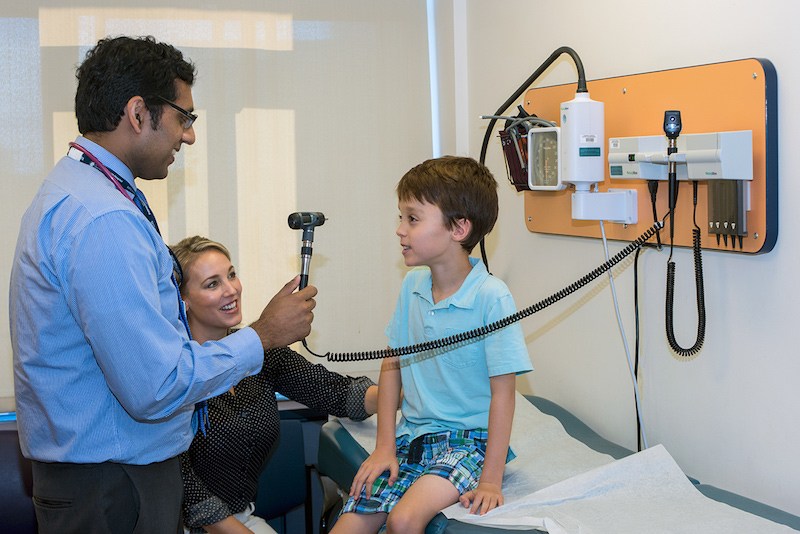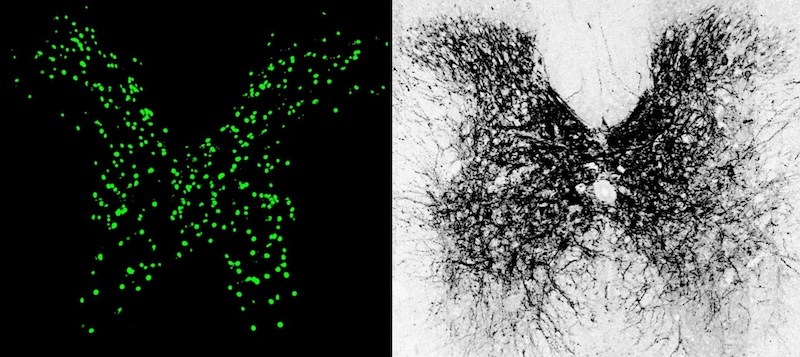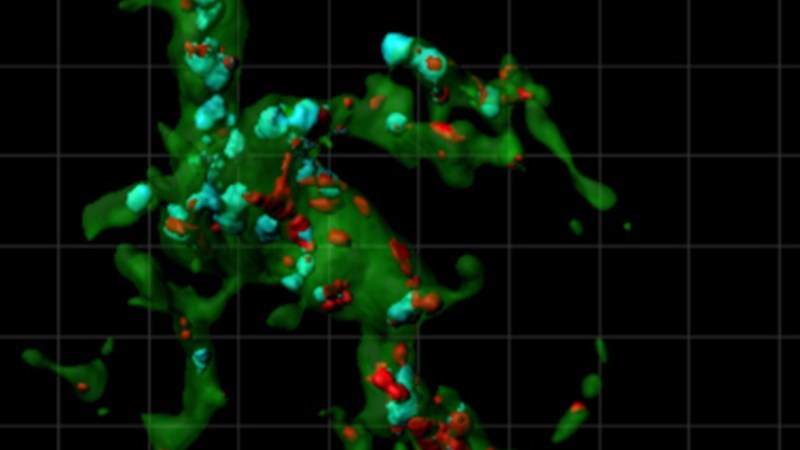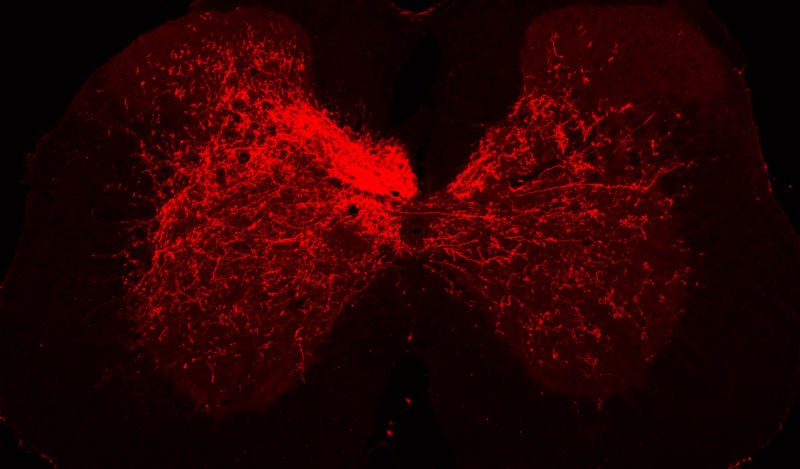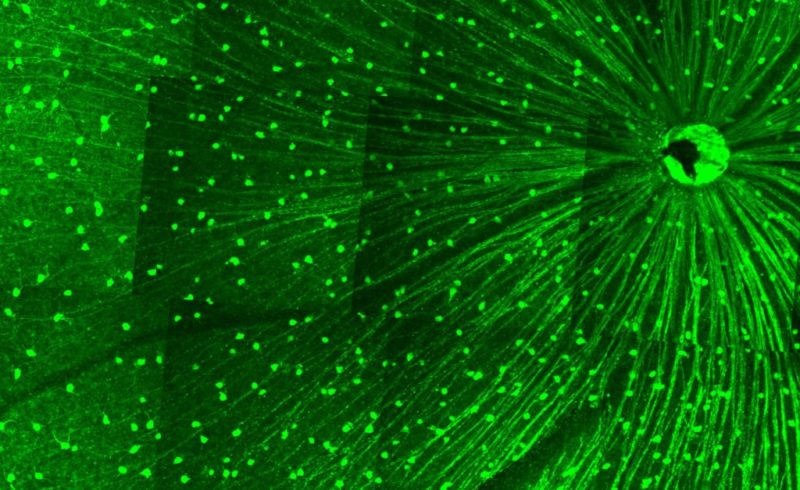Archive for neuroscience
New technique images whole brains with incredible resolution
Decades ago, discoveries about the brain’s intricate anatomy were made with careful dissection and drawings. Today, they’re made with super-resolution imaging and massive computing power capable of handling hundreds of terabytes of data. In this week’s Science, a team out of the Massachusetts Institute of Technology (MIT), the Janelia Research Campus of the Howard Hughes Medical ... Read More about New technique images whole brains with incredible resolution
Tagged: imaging, neuroscience
How the antidepressant ketamine rapidly awakens the brain, and why its effects vary more in women
In small doses, the anesthetic ketamine is a mildly hallucinogenic party drug known as “Special K.” In even smaller doses, ketamine relieves depression — abruptly and sometimes dramatically, steering some people away from suicidal thoughts. Studies indicate that ketamine works in 60 to 70 percent of people not helped by slower-acting SSRIs, the usual drugs ... Read More about How the antidepressant ketamine rapidly awakens the brain, and why its effects vary more in women
Tagged: mental health, neuroscience, rett syndrome
Synapse ‘protection’ signal found; helps to refine brain circuits
The developing brain is constantly forming new connections, or synapses, between nerve cells. Many connections are eventually lost, while others are strengthened. In 2012, Beth Stevens, PhD and her lab at Boston Children’s Hospital showed that microglia, immune cells that live in the brain, prune back unwanted synapses by engulfing or “eating” them. They also ... Read More about Synapse ‘protection’ signal found; helps to refine brain circuits
Tagged: neurology, neuroscience
Creating custom brains from the ground up
Scientists studying how genetics impact brain disease have long sought a better experimental model. Cultures of genetically-modified cell lines can reveal some clues to how certain genes influence the development of psychiatric disorders and brain cancers. But such models cannot offer the true-to-form look at brain function that can be provided by genetically-modified mice. Even ... Read More about Creating custom brains from the ground up
Tagged: neuroscience, stem cells
Earlier treatment may help reverse autism-like behavior in tuberous sclerosis
New research on autism has found, in a mouse model, that drug treatment at a young age can reverse social impairments. But the same intervention was not effective at an older age. The study is the first to shed light on the crucial timing of therapy to improve social impairments in a condition associated with ... Read More about Earlier treatment may help reverse autism-like behavior in tuberous sclerosis
Finally in the game: Patient in drug trial for PTEN mutation seems to benefit
From the time of Preston Hall’s birth at 30 weeks, his parents navigated multiple diagnoses, surgeries and sometimes life-threatening medical issues. At 11 months, Preston underwent skull revision surgery for trigonocephaly (a fusion of the skull bones causing a triangular-shaped forehead). After surgery, his doctors discovered serious airway and gastrointestinal issues that led to his ... Read More about Finally in the game: Patient in drug trial for PTEN mutation seems to benefit
Inhibiting inhibitory neurons gets mice with spinal cord injury to walk again
Most people with spinal cord injury are paralyzed from the injury site down, even when the cord isn’t completely severed. Why don’t the spared portions of the spinal cord keep working, allowing at least some movement? A new study just published online by Cell provides insight into why these nerve pathways remain quiet. Most intriguingly, it shows that ... Read More about Inhibiting inhibitory neurons gets mice with spinal cord injury to walk again
Tagged: neuroscience, spinal cord injury
Beth Stevens: A transformative thinker in neuroscience
When 2015 MacArthur “genius” grant winner Beth Stevens, PhD, began studying the role of glia in the brain in the 1990s, these cells—“glue” from the Greek—weren’t given much thought. Traditionally, glia were thought to merely protect and support neurons, the brain’s real players. But Stevens, from the Department of Neurology and the F.M. Kirby Neurobiology ... Read More about Beth Stevens: A transformative thinker in neuroscience
Novel therapeutic cocktail could restore fine motor skills after spinal cord injury and stroke
Neuron cells have long finger-like structures, called axons, that extend outward to conduct impulses and transmit information to other neurons and muscle fibers. After spinal cord injury or stroke, axons originating in the brain’s cortex and along the spinal cord become damaged, disrupting motor skills. Now, reported today in Neuron, a team of scientists at Boston Children’s ... Read More about Novel therapeutic cocktail could restore fine motor skills after spinal cord injury and stroke
Tagged: neuroscience, regeneration, spinal cord injury
Optic nerve regeneration: One approach doesn’t fit all
Getting a damaged optic nerve to regenerate is vital to restoring vision in people blinded through nerve trauma or disease. A variety of growth-promoting factors have been shown to help the optic nerve’s retinal ganglion cells regenerate their axons, but we are still far from restoring vision. A new study on optic nerve regeneration, published ... Read More about Optic nerve regeneration: One approach doesn’t fit all
Tagged: blindness, neuroscience, regeneration


